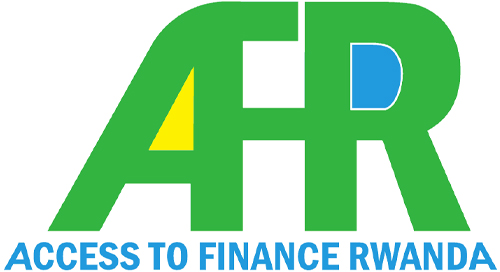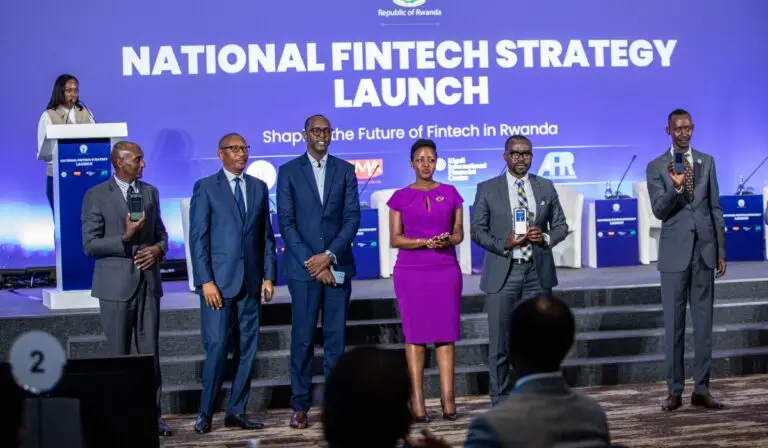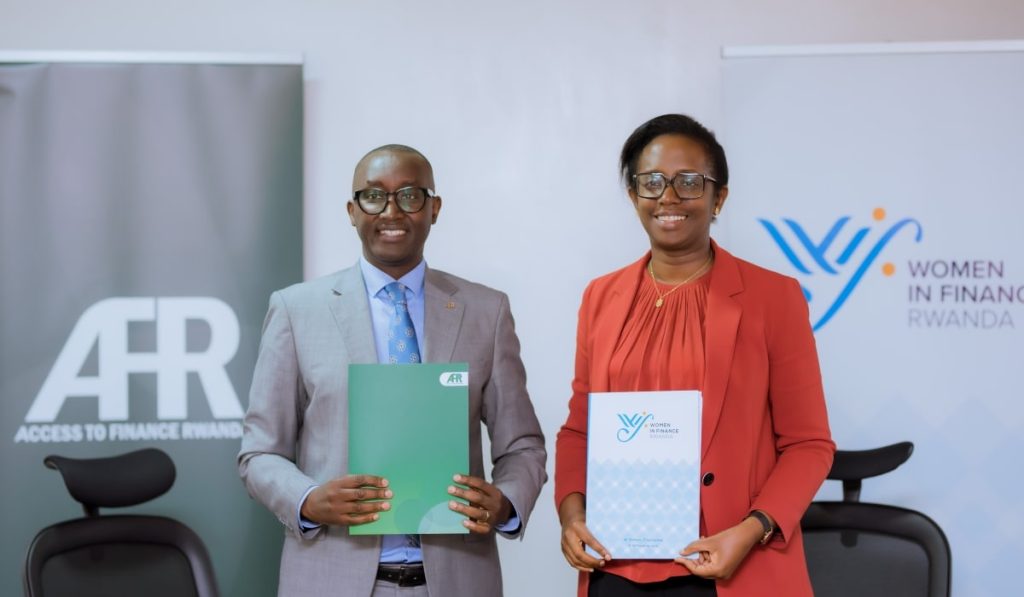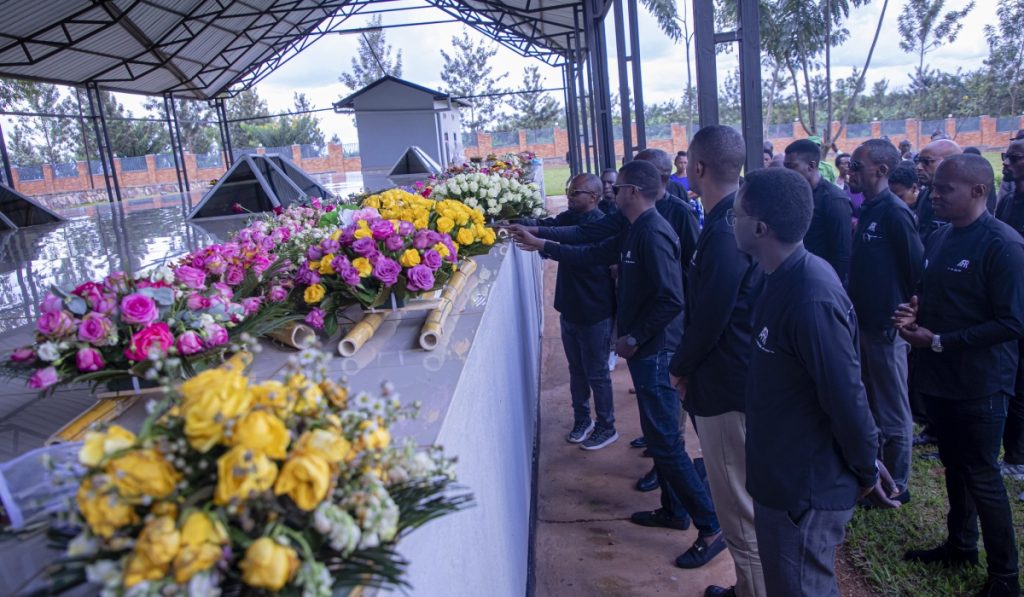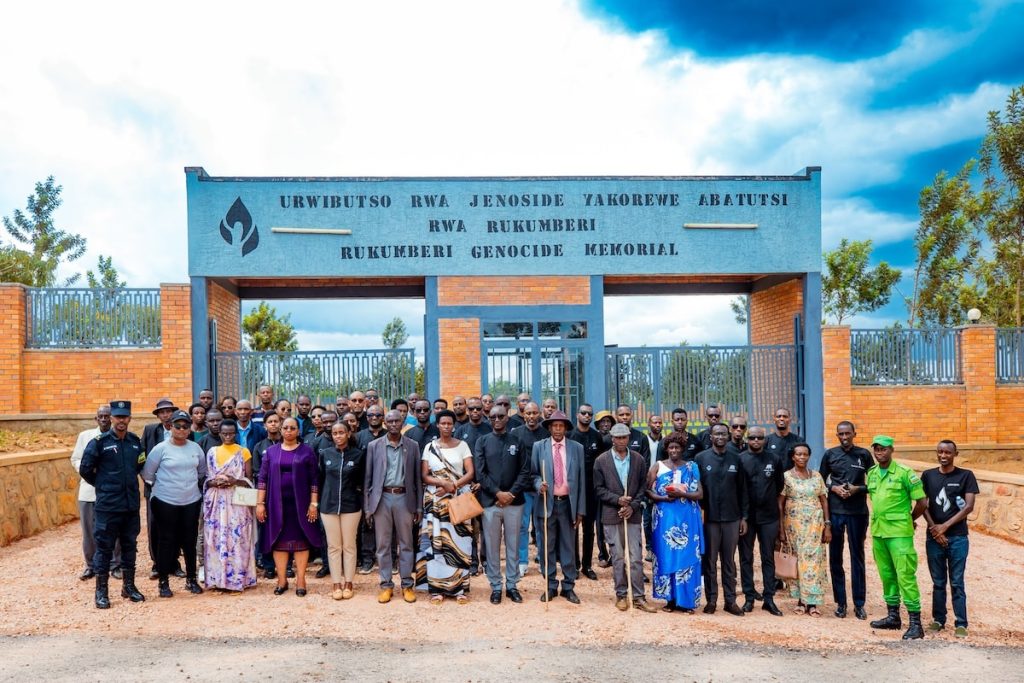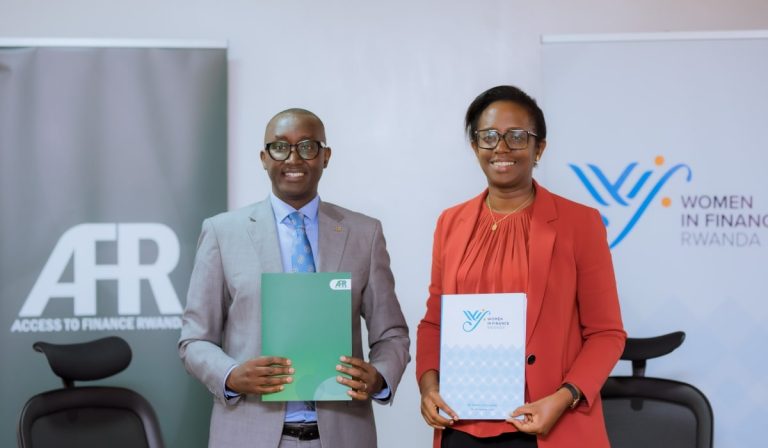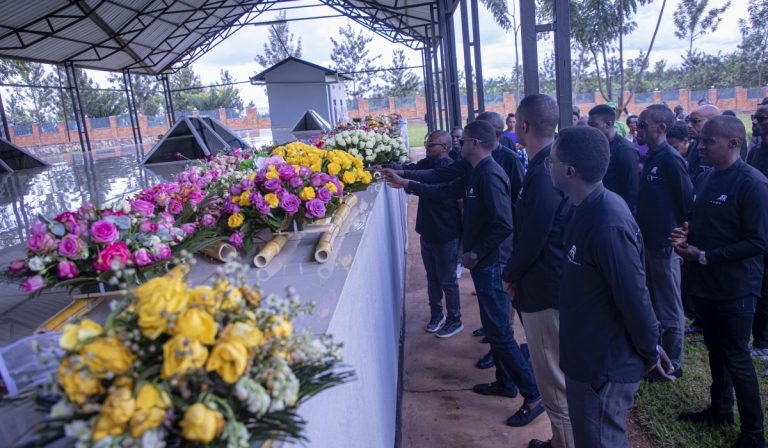Access to Finance Rwanda (AFR) on June 20 launched the fifth Finscope Survey which revealed access trends and changes in financial inclusion in Rwanda over the past four years.
In collaboration with the Ministry of Finance and Economic Planning (MINECOFIN), the National Bank of Rwanda (BNR), and the National Institute of Statistics of Rwanda (NISR), AFR unveiled the findings of the Finscope 2024 under the theme “Financial Inclusion in Rwanda: From Access to Usage and Benefits.”
The launch brought together stakeholders from the financial sector, including financial service providers, nonbank financial institutions, Fintechs, mobile network operators, policymakers and regulators, the private sector, researchers and academia, and development partners.
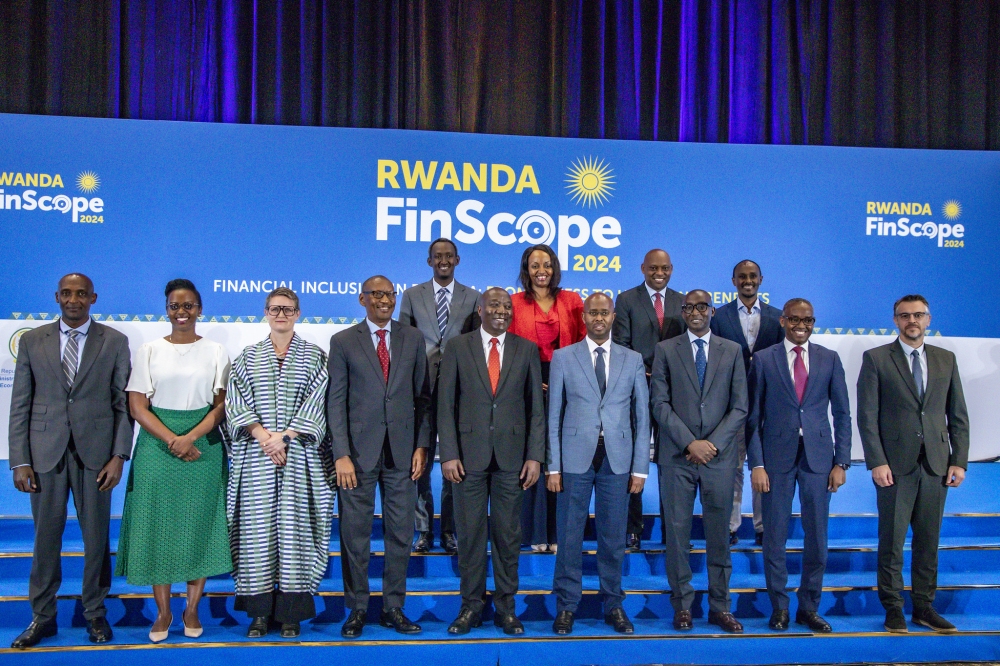
PM Ngirente and officials pose for a group photo during Access to Finance Rwanda’s (AFR) launch of the fifth Finscope Survey on June 20. Photos by Emmanuel Dushimimana
According to Jean Bosco Iyacu, the CEO of Access to Finance Rwanda, the 2024 Rwanda Finscope report is noteworthy since it is the first survey undertaken following the Covid-19 pandemic and subsequent economic shocks that followed the pandemic over the last four years.
“It actually provides great insights into how these shocks have changed the access and utilisation of financial services and how financial sector actors have responded to the pressure,” he remarked.
“For instance, FinScope consumer surveys in recent years have been motivated by the need to create trustworthy information or evidence to support policy actions by financial sector providers in their efforts to broaden the breadth and depth of Rwanda’s financial ecosystem, but in 2024, the focus shifted from financial inclusion to inclusive finance” he added.
Iyacu also stated that the primary goal is to target and transform the livelihoods of Rwandans through the use of appropriate financial products and services. Findings from the latest survey show huge growth in formal financial inclusion from 77 per cent, about 5.4 million people in 2020 to 92 per cent, 7.5 million people in 2024, surpassing the 90 per cent target set for 2024.
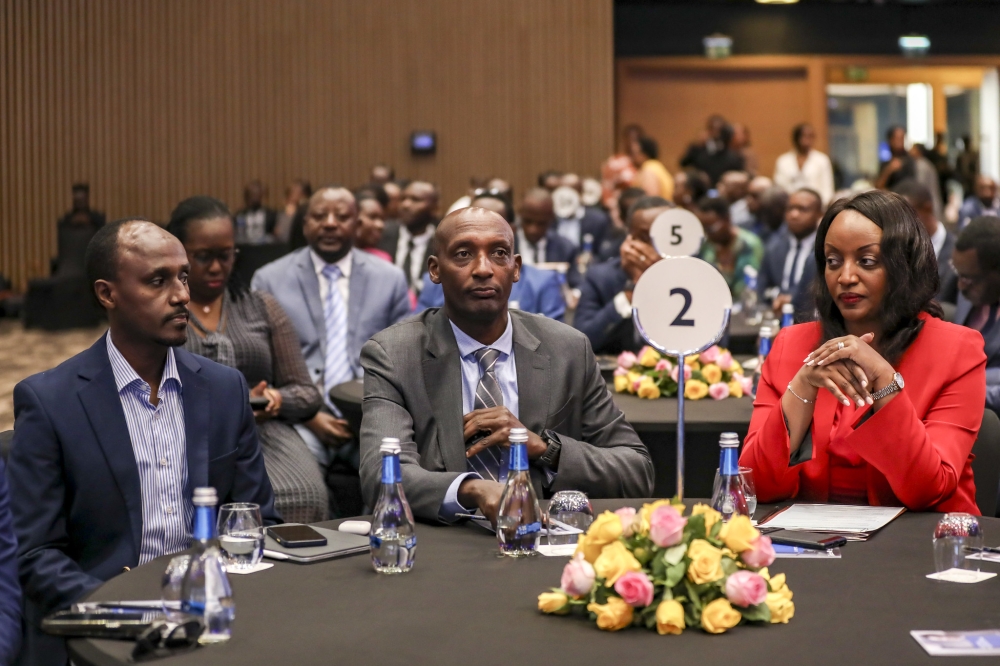
Delegates follow a presentation as Access to Finance Rwanda (AFR) unveiled the findings of the Finscope 2024 under the theme “Financial Inclusion in Rwanda from Access to Usage and Benefits”.
In Rwanda, one-third of adults (31 per cent), or 2.5 million, use banking channels or services. Access to Finance Rwanda’s Head of Research and Information John Rwirahira who presented the latest study’s results revealed that the use of digital financial services climbed from 30 per cent (2.1 million) in 2020 to 73 per cent (5.9 million) in 2024.
The Minister of Finance and Economic Planning, Yusuf Murangwa, emphasised the need for universal financial inclusion and access to financial services, saying they are key for strong economic development and ensuring that no one is left behind in the process.
“About 15,000 households nationally are surveyed as part of the Finscope study, which is very helpful in understanding the state of inclusion and financial services as well as related services that go beyond inclusion,” he stated.
Murangwa further emphasized that although the data indicated that 96% of Rwandans were financially included, 4% of eligible adults were still not included in the financial inclusion statistics.
The launch of the Finscope 2024 survey was presided over by Prime Minister Edouard Ngirente.
Ngirente lauded institutions and partners collaborating to conduct the survey, stating that financial inclusion surveys are an important source of valuable data that inform evidence-based policy and decision-making. He emphasized that financial inclusion is positioned globally as an emblem of other development goals.
“The Rwandan government particularly values the Finscope reports released every four years because increased access to financial services leads to a more resilient and stable economy,” he said, adding that formal savings channels and responsible borrowing practices can further improve financial inclusion and boost economic growth.
The Prime Minister also highlighted that the studies provide insights into Rwanda’s financial inclusion environment.
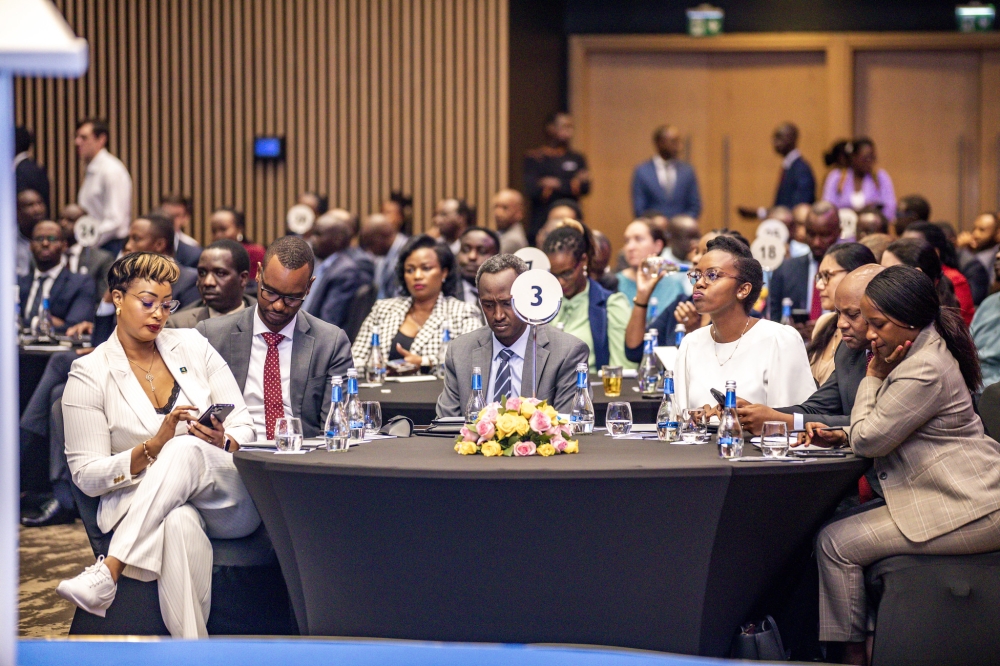
Panellists discuss the launch of the Finscope Survey 2024.
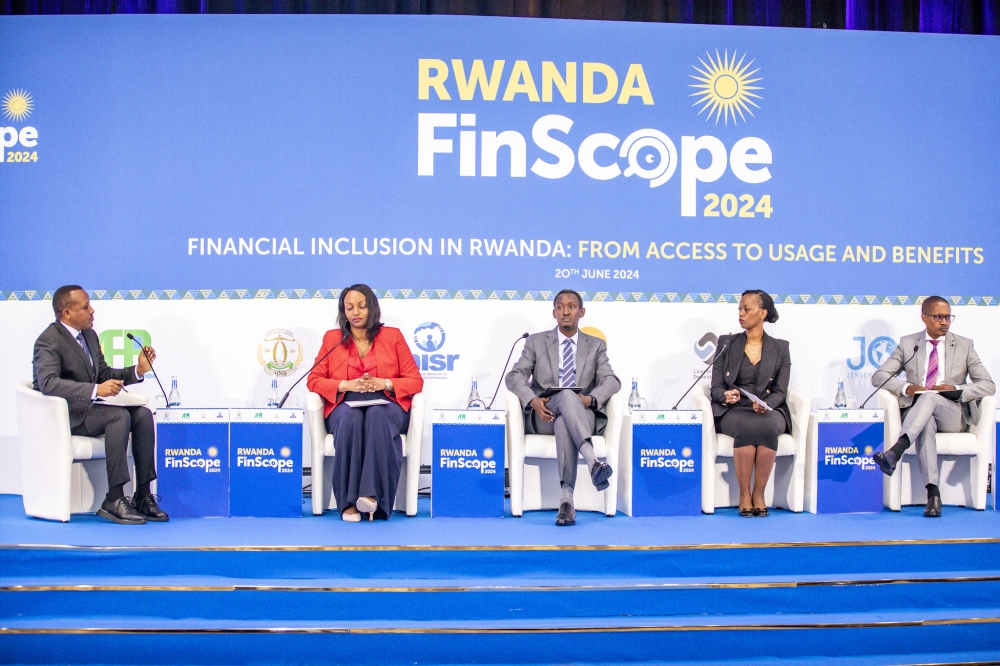
Panelists discuss during the launch of the Finscope 2024
